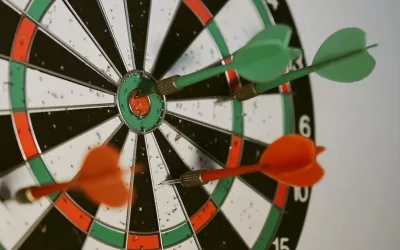Nebraska, with its amazing small towns and vibrant communities, serves as a desirable destination for many people looking to settle down and buy a home. However, navigating through the intricate world of mortgages can often feel overwhelming. With various types of mortgages available, it becomes crucial for homebuyers to understand their options and choose the one that suits their needs and financial situation the best. In this blog post, we will explore the different types of mortgages in Nebraska and shed light on their features, advantages, and potential drawbacks.
1. Conventional Mortgage:
The conventional mortgage is the most common type of home loan in Nebraska. It follows the guidelines set by Fannie Mae and Freddie Mac, two government-sponsored enterprises. Conventional mortgages typically require a down payment of at least 5%. With a good credit score and stable income, borrowers can achieve competitive interest rates on these loans. However, stricter eligibility requirements and a longer approval process are some potential drawbacks of conventional mortgages.
2. FHA (Federal Housing Administration) Loan:
Backed by the Department of Housing and Urban Development (HUD), FHA loans offer more flexibility for homebuyers. These mortgages require a down payment of only 3.5% and have less stringent credit score requirements. FHA loans are especially beneficial for first-time homebuyers or those who have limited savings or a lower credit score. However, borrowers must pay mortgage insurance premiums to offset the risk to the lender, which could increase the overall costs.
3. VA (Veterans Affairs) Loan:
Designed exclusively for military veterans, active-duty service members, and eligible surviving spouses, VA loans are guaranteed by the Department of Veterans Affairs. These mortgages offer zero down payment options, lower interest rates, no mortgage insurance requirements, and more relaxed credit score standards. The VA loan program serves as a token of gratitude to those who have selflessly served our country.
4. USDA (United States Department of Agriculture) Loan:
For individuals looking to purchase properties in rural areas, the USDA loan program provides an attractive option. These loans, backed by the USDA, offer competitive interest rates, zero down payment, and flexible credit requirements. To qualify for a USDA loan in Nebraska, the property location must meet the eligibility criteria defined by the USDA, designed to increase homeownership in rural communities.
5. Jumbo Loan:
A jumbo loan, also known as a non-conforming loan, is a mortgage that exceeds the limits set by Fannie Mae and Freddie Mac. In Nebraska, the current limit for these loans is $510,400. Jumbo loans cater to higher-priced properties and provide financing options for buyers who require larger loan amounts. However, jumbo loans typically have stricter qualifications, higher down payment requirements, and slightly higher interest rates compared to conventional mortgages.
6. Fixed-rate Mortgage:
Ideal for buyers who prefer stability and predictability, the fixed-rate mortgage offers a constant interest rate throughout the loan term. In Nebraska, this term usually ranges from 10 to 30 years. Fixed-rate mortgages allow borrowers to plan their finances efficiently, as the monthly payments remain the same for the entire duration of the loan. These mortgages are especially suitable for those planning to stay in their homes for an extended period or seeking consistency in their mortgage payments.
7. Adjustable-rate Mortgage (ARM):
An ARM offers an initial fixed interest rate for a specific period, usually 5, 7, or 10 years, after which the rate adjusts periodically based on market conditions. In Nebraska, this adjustment typically occurs annually. Initially, ARM loans can have lower interest rates compared to fixed-rate mortgages. However, they come with some uncertainty, as the subsequent rate adjustments can lead to higher or lower monthly payments, depending on market trends.
8. Balloon Mortgage:
A balloon mortgage, although less commonly used, offers mortgage payments based on a shorter-term loan, usually 5 or 7 years, with lower monthly payments. However, at the end of the term, a balloon payment becomes due, which requires the borrower to pay off the remaining balance in full. Balloon mortgages can be beneficial for buyers who plan to sell their homes or refinance it before the balloon payment becomes due. Nevertheless, the risk of not being able to pay off the balloon payment poses a significant disadvantage to borrowers.
9. Reverse Mortgage:
Reverse mortgages provide an option for homeowners aged 62 or older to convert a portion of their home equity into loan proceeds, without having to sell their homes. It allows seniors to access their equity as a cash payment, line of credit, or monthly payment, providing financial flexibility during retirement. However, reverse mortgages have unique eligibility requirements and it is important to review the pro’s and cons of a reverse mortgage.
Each type of mortgage discussed above has its own set of advantages and considerations. It is essential for potential homebuyers to carefully evaluate their financial situation, future plans, and personal preferences before choosing the most suitable mortgage option in Nebraska. Working closely with a knowledgeable mortgage lender can help navigate the complexities and ensure a smooth home buying process.
How do mortgages work
For many individuals, owning a home is a lifelong dream. However, the thought of navigating the complex world of mortgages can be overwhelming. Understanding how mortgages work is crucial to making informed decisions and achieving your homeownership goals. In this...
Why you should work with a local mortgage broker in Nebraska
When it comes to purchasing a home in Nebraska, choosing the right mortgage lender is a crucial decision. While big banks and nationwide lenders may seem like attractive options due to their advertised low prices, working with a local, independent mortgage broker can...
How does your credit score affect your mortgage rate?
When it comes to buying a home, your credit score plays a crucial role in determining the interest rate you’ll be offered on your mortgage loan. Whether you’re a first-time homebuyer or a seasoned homeowner looking to refinance, understanding how your credit score...




